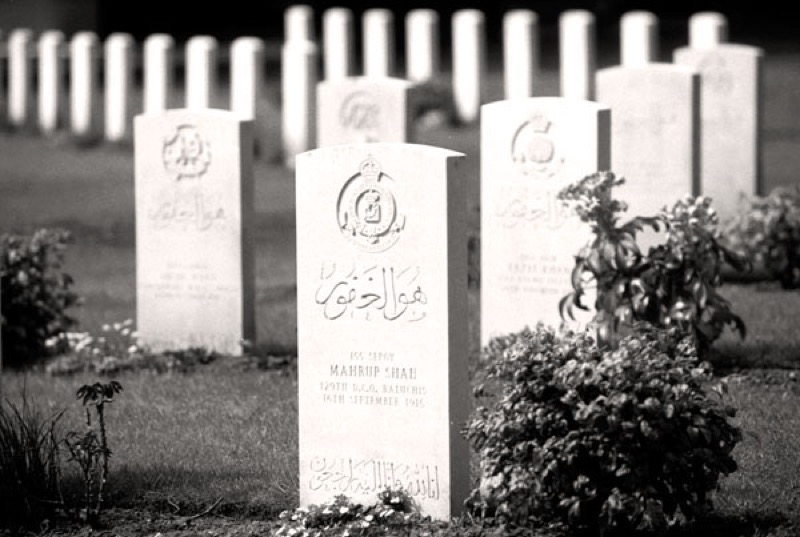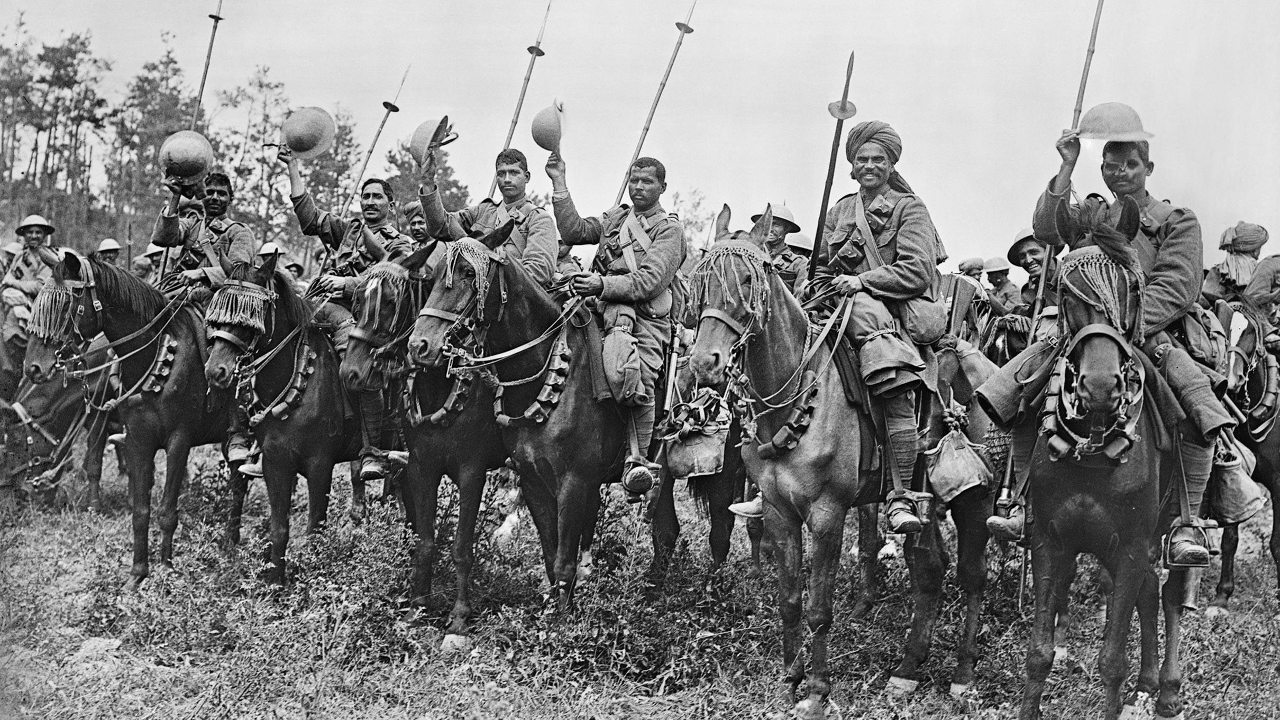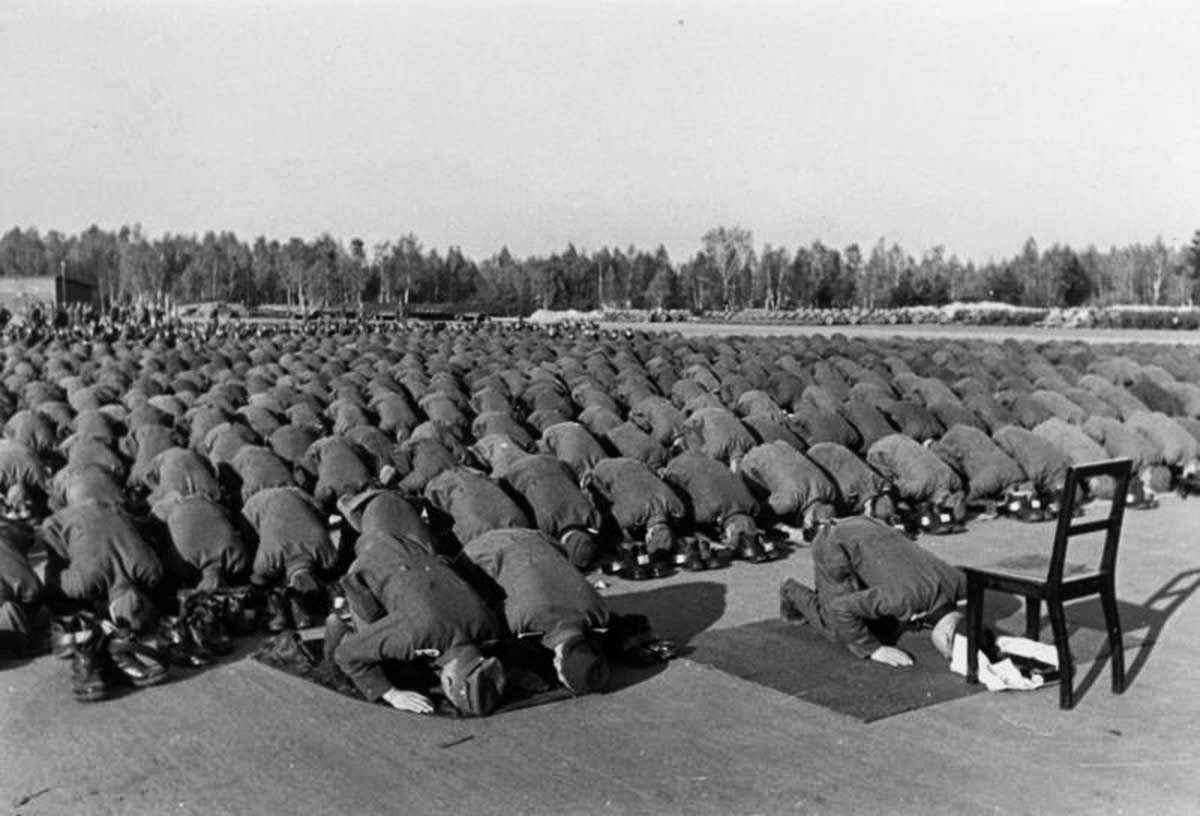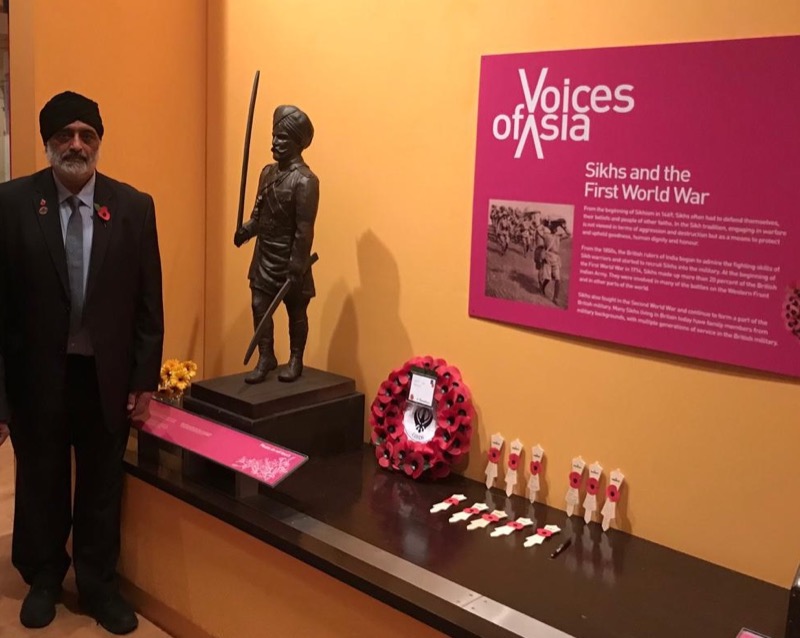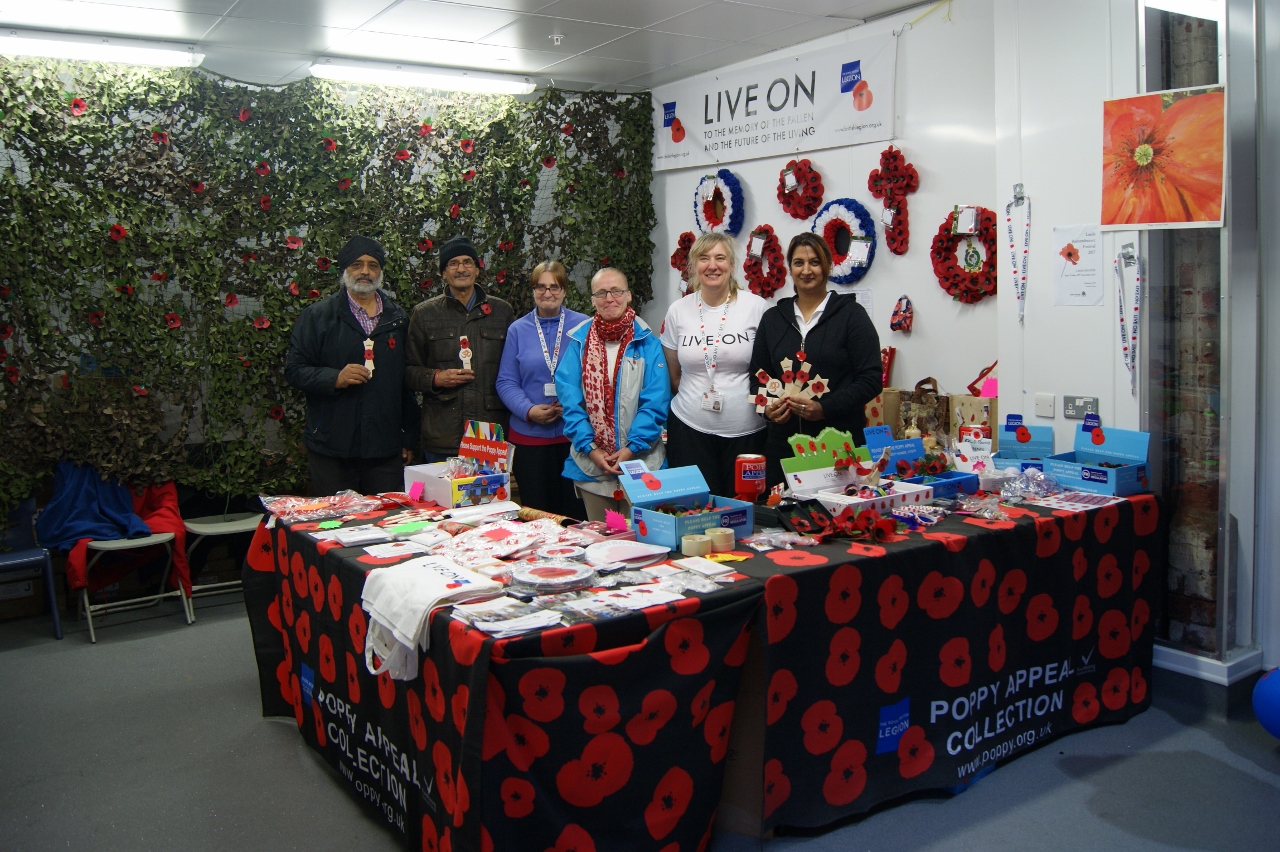Their stories, and their heroism, have long been omitted from popular histories of the war, or relegated to the footnotes.
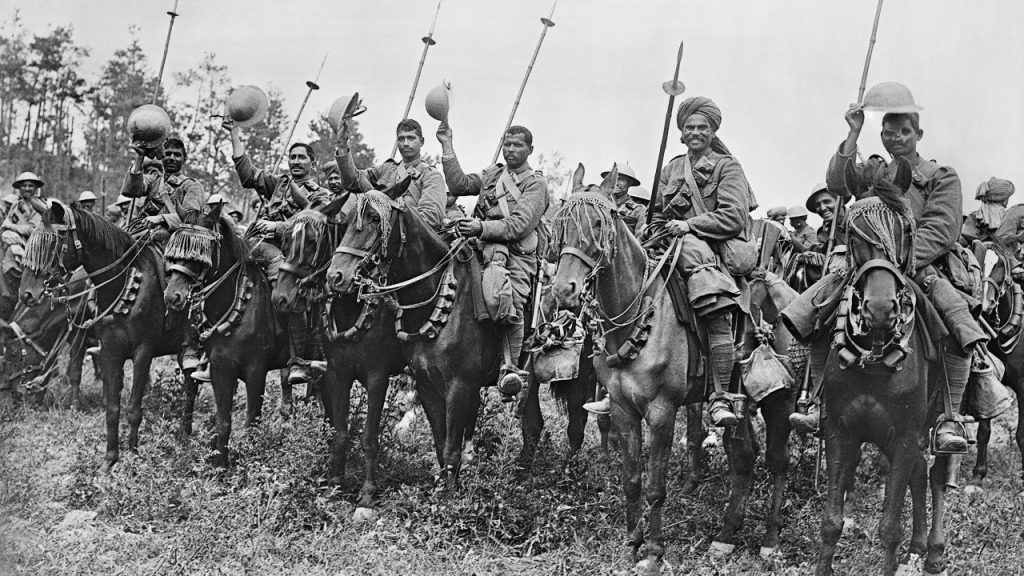
Remembrance is part of modern British life and our cultural heritage. It is a time of contemplation for the country as a whole.
Over 3.5million soldiers from the South Asian subcontinent fought for Britain in the two conflicts, with tens of thousands killed in action.
During the first World War, almost 1.5 million troops consisting of Muslim, Sikh and Hindu sepoys from the Indian Army fought on the Western Front.
As many as 74,187 Indian soldiers died during the war and a comparable number were wounded. Their stories, and their heroism, have long been omitted from popular histories of the war, or relegated to the footnotes.
By the end of the Great War, India had sent more than one million troops, braving their first-ever European winter in their tropical uniforms. Without the sheer numbers of the Indian army, the history of WW1 could have looked very different indeed.
It was Indian jawans (junior soldiers) who stopped the German advance at Ypres in the autumn of 1914, soon after the war broke out, while the British were still recruiting and training their own forces.
Hundreds were killed in a gallant but futile engagement at Neuve Chappelle. More than 1,000 of them died at Gallipoli, thanks to Churchill’s folly. Nearly 700,000 Indian sepoys (infantry privates) fought in Mesopotamia against the Ottoman Empire, Germany’s ally, many of them Indian Muslims taking up arms against their co-religionists in defence of the British Empire.
The most painful experiences were those of soldiers fighting in the trenches of Europe. Letters sent by Indian soldiers to their family members in their villages back home speak an evocative language of cultural dislocation and tragedy.
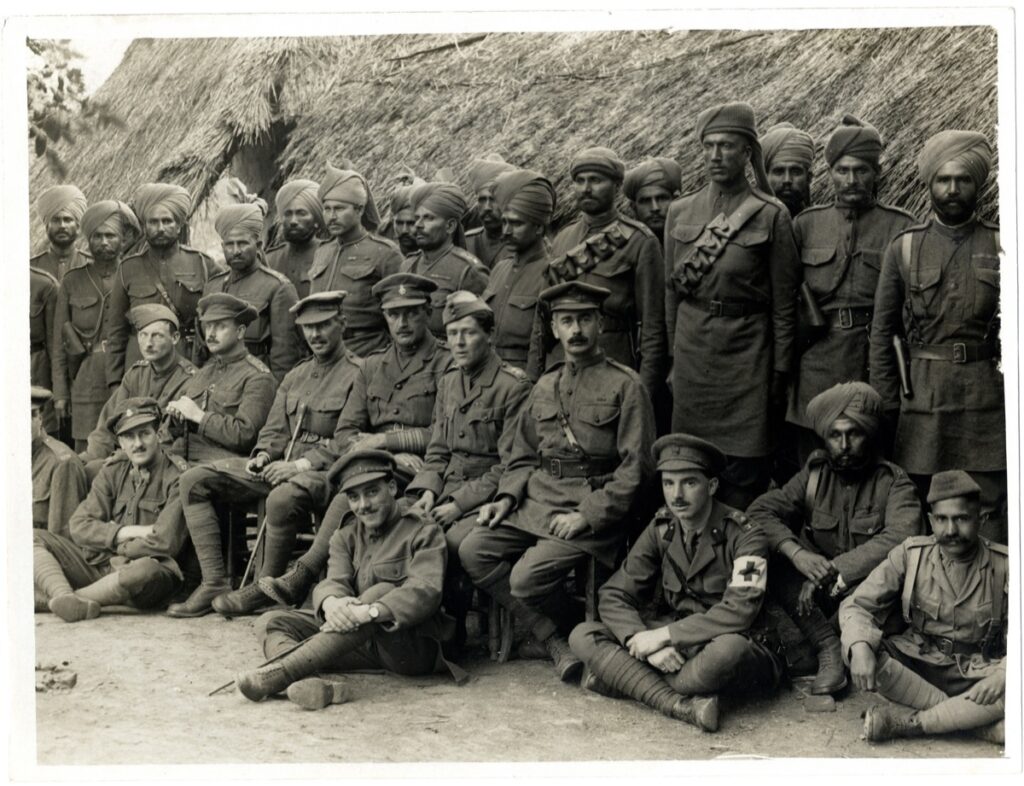
Four hundred thousand of those men were Muslims from what is now Pakistan. Men like Khudadad Khan, a soldier from the Punjab: fighting in the trenches of the Western Front the badly-wounded machine gunner single-handedly held off the enemy advance long enough for Indian and British reinforcements to arrive.
At a time when anti-Muslim hatred, #Islamophobia is on the rise, and the loyalty of ethnic minorities to Britain is being questioned by some, it’s only right that the heroism and bravery of Muslim soldiers – as well as Hindu and Sikh soldiers – who fought in the First and Second World Wars is also remembered.
What better riposte to far-right extremists, when they say that Muslims have no place in Britain, than to point out that Muslims gave their lives for Britain; joined up to fight when this country most needed them?
Remembering our history can help to bring us together and renew our commitment to fight for justice and equality. While our society can feel more fragmented and divided than any of us would like, these moments that we all share can help to shape a more inclusive identity that feels equally owned by Britons of all backgrounds and colours.
Khudadad Khan became the first Indian and Muslim recipient of the Victoria Cross in 1914, at the age of 26
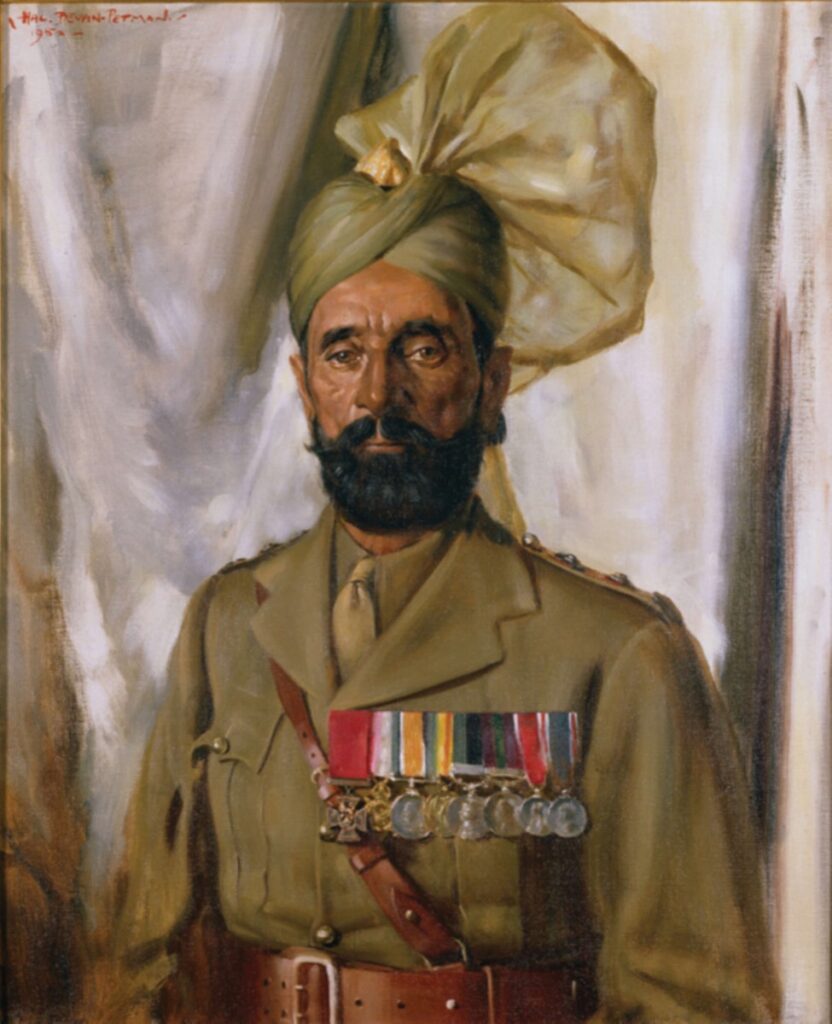
Khudadad Khan became the first Indian and Muslim recipient of the Victoria Cross in 1914, at the age of 26.
Born in Chakwal, Punjab, in present-day Pakistan, Subedar Khudadad Khan served in the 129th Duke of Connaught’s Own Baluchis and was sent to the Western Front in 1914.
During WW1, despite being hugely outnumbered and badly injured, Khan kept his machine gun firing and fought on with such resilience that he succeeded in slowing the German advance, giving British troops enough time to reinforce their positions. Left for dead, Khan crawled back to British lines.
Awarded the Victoria Cross for his actions, Khan eventually returned to India and lived there until his death in 1971.
When the Germans launched a massive offensive in October to capture the Belgian channel ports, the Baluchis were rushed to the front. In what would become known as the First Battle of Ypres, Khan’s regiment bore the brunt of the German assault near the village of Hollebecke, Belgium.
Vastly outnumbered, Khudadad Khan’s machine gun team kept their gun firing throughout the day, holding back the German attack. A shell destroyed the only other machine gun and eventually Khan’s team was over run.
Despite all the other men being killed, and being badly injured himself, Khan had continued to fire on the enemy throughout.
Left for dead by the Germans, he managed to crawl back to his regiment during the night.
His bravery (and that of the other Baluchis) had held off the German advance just long enough that reinforcements could arrive and prevent the enemy from reaching the vital channel ports. For his actions, he was awarded the Victoria Cross.
Promoted to the rank of Subedar, Khan later returned to India where he remained in the army. He died in Pakistan in 1971 at the age of 82. His portrait hangs at the National Army Museum and his VC is on display at his ancestral home in Pakistan.


